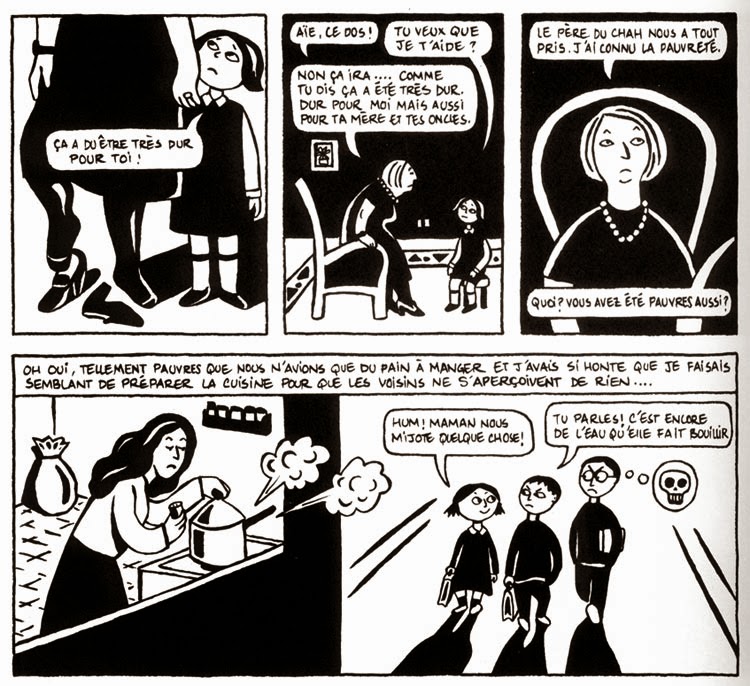Comics have begun breaking their own mold, transitioning into medias that extend beyond the range of newspapers, sunday strips, and even the classic super hero comics are experimenting beyond their comfort zone. The best example of a comic that exemplifies the progress of narrative in cartooning is Persepolis by Marjane Satrapi.
Persepolis is an autobiographical graphic novel depicting Marjane Satrapi's childhood up to her early adult years in Iran during and after the Islamic Revolution. The title is a reference to the ancient capital of the Persian Empire, Persepolis. Newsweek ranked the book #5 on its list of the ten best fiction books of the decade.
Like Blankets, March, Maus, and other such books released in the past few decades, Persepolis proves the power of autobiographical works in non-fiction. With Persepolis we are not only learning about the history of Iran, both ancient and recent, but we are also learning them through first-hand accounts in a much stronger sense of detail, granting the history that much more power.
French comics publisher L'Association published the original work in four volumes between 2000 and 2003. Pantheon Books (North America) and Jonathan Cape (United Kingdom) published the English translations in two volumes, in 2004 and 2005, respectively. Omnibus editions in French and English alike followed in 2007, coinciding with the comic's later film release, co-directed by Satrapi and Vincent Paronnaud. Although the film emulates Satrapi's visual style of high-contrast inking, a present-day frame story is rendered in color. In the United States, Persepolis was nominated for Best Animated Feature at the 2007 Academy Awards.









No comments:
Post a Comment